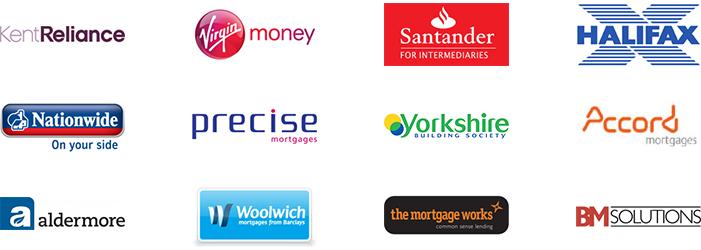Buying a house is one of the most important purchases you will make, and buying a home for the first time will be an even more daunting prospect. Add to this the vast array of mortgage products available from a wide range of sources and you could be left with a high-stress, confusing decision. To help you with making the right decision we have put together 5 top tips for you.
Choosing a mortgage - the essential quick guide
1. How to get the best rates
The problem is that rates are being used not just to make money but also to ration mortgages - most lenders could not cope with the demand that offering say 3 per cent over five years to those with a 25 per cent deposit would bring.
If you want to fix and you have a 25 per cent deposit or equity, despite the doom and gloom, now is not a bad time to be looking for a mortgage. After all, any rates below 5 per cent are historically cheap.
2. How big a deposit do I need?
To get the full choice of deals raising a decent deposit is still vital. The benchmark figure is 25 per cent, if you have this then you'll be getting close to the best rates, although for an absolute cheapest deal you're still likely to need 40 per cent.
However, things are looking up for homemovers and first-time buyers who can't raise that hefty quarter of a property's value. A selection of better deals for 15 per cent deposits are available and even the 10 per cent deposit market is looking perkier.
3. Should I take a fixed rate?
The key question to this is "when will interest rates rise?".The general consensus appears to be that there will be no dramatic sudden increases. However, these forecasts are no guarantee that rates won't rise and when rates rise trackers will get more expensive. [Remember almost no one forecast base rate heading down to 0.5 per cent]
Borrowers needing security should consider the extra cost of a fix as worthwhile. If you are taking a tracker because you couldn't afford the equivalent fixed rate then you are putting yourself in a very dangerous position.
For those remortgaging, or buying and able to take their mortgage with them, if you don't need to act right now, i.e. you are on an existing low tracker rate or guaranteed standard variable rate, it might be worth keeping your cheap deal - but remember you are taking a punt on low rates and setting aside some savings that you make is a wise move.
4. Should I take a tracker rate?
Tracker rates look good right now. They are cheaper than fixes but they should come with a massive warning sign attached, as essentially they are a gamble.
What looks like a bargain rate now, could soon get very expensive when interest rates rise.
Even the best trackers are at about 2 to 3 per cent above base rate. That's fine when base rate is 0.5 per cent, but a whole a lot more expensive if it rises to just 2.5 per cent, which would still be a historically low level.
Anyone considering a tracker needs to make sure they are not just storing up a problem for the future. If the tracker comes with an early redemption penalty that would make it expensive to jump ship, then make sure your finances could take a rise of at least 2 per cent to 3 per cent in interest rates.
Of course, that may not happen. Inflation may subside, the UK may remain mired in economic gloom and rates may stay below 1% for many years to come. If that happens a tracker looks a good bet, but just to reiterate - it is a gamble.
For that reason we like tracker deals that fit into one of these three categories: no early redemption penalties, a cap to how high the rate will go, or that let you jump ship for a fixed rate if rates rise.
5. Will my lender hike my standard variable rate?
A number of mortgage borrowers have fallen victim to lenders hiking their standard variable rates, despite the base rate remaining stable.
Santander announced it would raise its SVR for an estimated 300,000 borrowers in mid-August 2014.
Halifax had been the biggest name to do this when it announced it was bumping its SVR from 3.5 per cent to 3.99 per cent in spring 2014.
Some RBS and NatWest borrowers also suffered a recent hike, as have Co-op, Clydesdale and Yorkshire Bank customers and Bank of Ireland borrowers.
Skipton Building Society did it too when its SVR soared from 3.5 per cent to 4.95 per cent. It had previously pledged its SVR would never be more than 3 per cent above base rate and had reduced it accordingly as the Bank of England cut rates. To change its SVR, Skipton had to cite 'exceptional circumstances'.
A number of small building societies, including Marsden, Scottish, Cambridge, Kent Reliance and Accord Mortgages, have also raised SVRs since the base rate hit rock bottom.
Other lenders like Nationwide have introduced a new SVR - it has a new one at 3.99 per cent, instead of 2.5 per cent, for new borrowers and those remortgaging.
Never forget than without a Nationwide-style base rate lock guarantee, your SVR could be hiked at any time, as could a discount rate linked to it.
THINK CAREFULLY BEFORE SECURING OTHER DEBTS AGAINST YOUR HOME. YOUR HOME MAY BE REPOSSESSED IF YOU DO NOT KEEP UP REPAYMENTS ON A MORTGAGE OR ANY OTHER DEBT SECURED ON IT.
Here are just some of the lenders we use and have access to...
